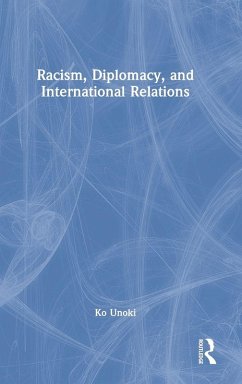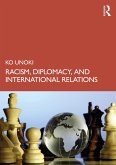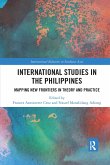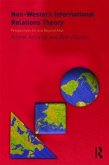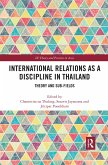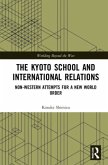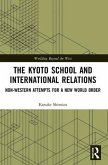Unoki addresses the significance of racism in international relations by focusing on its conception as a doctrine and its interrelationship with imperialism, its doctrinal role in the development of the discipline of International Relations (IR), and various episodes from Western and Asian history in which racism had affected state behavior and the practice of diplomacy.
The creation of empires that oppressed indigenous peoples, the two World Wars and the campaigns of ethnic "cleansing" and genocide that accompanied these wars and other conflicts, and international movements calling for the elimination of racial discrimination, attest to the impact racial prejudice, or racism, has had on international relations. Despite this history, racism's relevance is seldom mentioned in IR courses offered in universities or IR textbooks. Instead, IR scholars have often explained the behavior of states using the framework of theories that highlight variables and themes such as power, fear, and the search for security in an anarchic world. Unoki demonstrates that racism has not only substantially influenced the course of international relations but that it continues to do so in the 21st century, making it imperative that policymakers are aware of racism's deleterious legacy.
A vital resource for students, policymakers, and those who are interested in building a more tolerant and just world.
The creation of empires that oppressed indigenous peoples, the two World Wars and the campaigns of ethnic "cleansing" and genocide that accompanied these wars and other conflicts, and international movements calling for the elimination of racial discrimination, attest to the impact racial prejudice, or racism, has had on international relations. Despite this history, racism's relevance is seldom mentioned in IR courses offered in universities or IR textbooks. Instead, IR scholars have often explained the behavior of states using the framework of theories that highlight variables and themes such as power, fear, and the search for security in an anarchic world. Unoki demonstrates that racism has not only substantially influenced the course of international relations but that it continues to do so in the 21st century, making it imperative that policymakers are aware of racism's deleterious legacy.
A vital resource for students, policymakers, and those who are interested in building a more tolerant and just world.
"Traditional theories of world politics have mostly avoided or suppressed discussions of race and racism, focusing instead on concepts such as power, interests, sovereignty, and the nation-state. Unoki argues that without considerations of race, the field is incomplete. Race and racism have always lurked in the shadows of diplomacy and war."---G. John Ikenberry in Foreign Affairs March/April 2023 https://www.foreignaffairs.com/reviews/racism-diplomacy-and-international-relations
"Unoki has made an important contribution to an important and timely priority in international affairs. How the field of international affairs examines the role racism has played in the development of the field, the cannon, who teaches what to whom, and the institutional structures of international affairs, is front of mind not least in schools of international affairs commit to becoming anti-racist centers of learning and research."---Rachel Kyte, Dean of the Fletcher School of Law and Diplomacy, Tufts University
"Ko Unoki is a brilliant and accomplished scholar of international politics. His previous book on the period leading up to World War II in the Pacific provides a compelling and fresh analysis of US-Japanese relations and the international political structure prior to the Japanese attack on Pearl Harbor. His book, Racism, Diplomacy, and International Relations, is a must-read as we enter an international era that will rise or fall in part on its ability to deal with racism. Unoki traces the role of racism in international politics from the time of Woodrow Wilson and the Treaty of Versailles and makes a convincing case for its continuing challenge to peace and stability today and into the future."--- Deborah Winslow Nutter, PhD, Former Senior Associate Dean and Professor of Practice and Founding Director, Global Master of Arts Program at The Fletcher School Of Law and Diplomacy, Tufts University
"Unoki has made an important contribution to an important and timely priority in international affairs. How the field of international affairs examines the role racism has played in the development of the field, the cannon, who teaches what to whom, and the institutional structures of international affairs, is front of mind not least in schools of international affairs commit to becoming anti-racist centers of learning and research."---Rachel Kyte, Dean of the Fletcher School of Law and Diplomacy, Tufts University
"Ko Unoki is a brilliant and accomplished scholar of international politics. His previous book on the period leading up to World War II in the Pacific provides a compelling and fresh analysis of US-Japanese relations and the international political structure prior to the Japanese attack on Pearl Harbor. His book, Racism, Diplomacy, and International Relations, is a must-read as we enter an international era that will rise or fall in part on its ability to deal with racism. Unoki traces the role of racism in international politics from the time of Woodrow Wilson and the Treaty of Versailles and makes a convincing case for its continuing challenge to peace and stability today and into the future."--- Deborah Winslow Nutter, PhD, Former Senior Associate Dean and Professor of Practice and Founding Director, Global Master of Arts Program at The Fletcher School Of Law and Diplomacy, Tufts University
